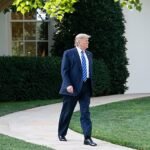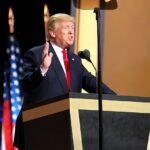Introduction
In a sweeping overhaul just before Memorial Day weekend 2025, the Trump administration dismissed over 100 National Security Council (NSC) staffers, reducing its workforce by nearly half. Led by interim National Security Adviser and Secretary of State Marco Rubio, this restructuring has sparked debate about its impact on U.S. foreign policy and national security. For Chicago, a global hub with deep ties to international trade and diplomacy, these changes raise questions about how a leaner NSC will handle a volatile world. This article examines the reasons behind the firings, their implications, and lessons for Chicago’s leaders.
The Mass Firings: What Happened?
On Friday, May 23, 2025, at 4:20 p.m., NSC Chief of Staff Brian McCormack emailed over 100 staffers—career officials and political appointees—directing them to clear their desks within 30 minutes. The dismissals followed the removal of former National Security Adviser Mike Waltz earlier in May, with Rubio taking over as interim head. The NSC, which had over 300 staffers during the previous administration, is now being cut to fewer than 150, reflecting President Trump’s aim to streamline the agency and prioritize loyalty.
The firings build on earlier tensions. In 2019, during Trump’s first term, two NSC staffers’ whistleblower complaint triggered an impeachment inquiry over a call with Ukrainian leadership. More recently, in April 2025, dismissals targeted officials perceived as disloyal, with some flagged by far-right activists during a White House visit. The latest cuts affected staff handling critical issues like Ukraine and the Middle East, raising concerns about gaps in expertise as global challenges, such as maritime tensions near Taiwan, intensify.
Why the Overhaul?
The administration defends the firings as a way to eliminate bureaucratic inefficiencies and align the NSC with the president’s agenda. Officials have criticized the NSC for excessive committees that slow decision-making, arguing it oversteps its advisory role. By appointing trusted aides like Andy Baker (Vice President JD Vance’s national security adviser) and Robert Gabriel (Trump’s longtime policy aide) as deputy national security advisers, the administration seeks to consolidate control and ensure alignment.
Proponents argue the cuts address leaks that undermine policy goals, citing instances where sensitive briefings reached the public. Critics, however, warn that slashing staff risks uninformed decisions, especially with key roles, like the Latin American affairs lead, vacant. The abrupt dismissals, conducted via email at the start of a holiday weekend, have also drawn criticism for lacking transparency.
Implications for National Security
The NSC coordinates foreign policy and advises the president on national security, drawing expertise from across government agencies. A reduced staff could weaken this function, increasing the risk of missteps in crises like potential escalations in Ukraine or the Indo-Pacific. Former national intelligence official Richard Clarke, who served under multiple administrations, emphasized the NSC’s role in providing diverse perspectives, cautioning that a top-down approach could lead to hasty decisions.
For Chicago, a city with global economic ties and a vibrant international community, a less effective NSC could impact trade policies and security partnerships. As a logistics hub hosting major firms, Chicago is sensitive to disruptions in global stability. A leaner NSC may struggle to address issues like supply chain security or cyber threats, which directly affect local businesses.
Lessons for Chicago’s Leaders
Chicago’s business and tech communities can learn from this shake-up. The NSC’s restructuring highlights the tension between efficiency and expertise—a challenge Chicago faces as it balances innovation with inclusive growth. Efforts to expand the city’s tech hub, such as through startup incubators, could benefit from streamlined decision-making, but only if paired with deep expertise. Trump’s approach, while decisive, risks losing institutional knowledge, a warning for Chicago leaders managing budget cuts or organizational changes.
The firings also underscore the importance of trust in leadership. Chicago’s leaders must ensure that streamlining efforts in city agencies prioritize competence over political alignment to avoid accusations of favoritism. For strategies on building effective teams in high-stakes settings, explore TechBit’s Guide to Leadership in Crisis.
Conclusion
The mass firings at the National Security Council signal a bold shift in the Trump administration’s approach to foreign policy and national security. By cutting staff and consolidating power, the administration aims for agility but risks losing critical expertise. For Chicago, this upheaval is a reminder of the balance between efficiency and institutional strength. As the city seeks to grow its global influence, learning from Washington’s moves—and missteps—could shape a resilient future. Stay informed on global policy trends at Your Website.


















